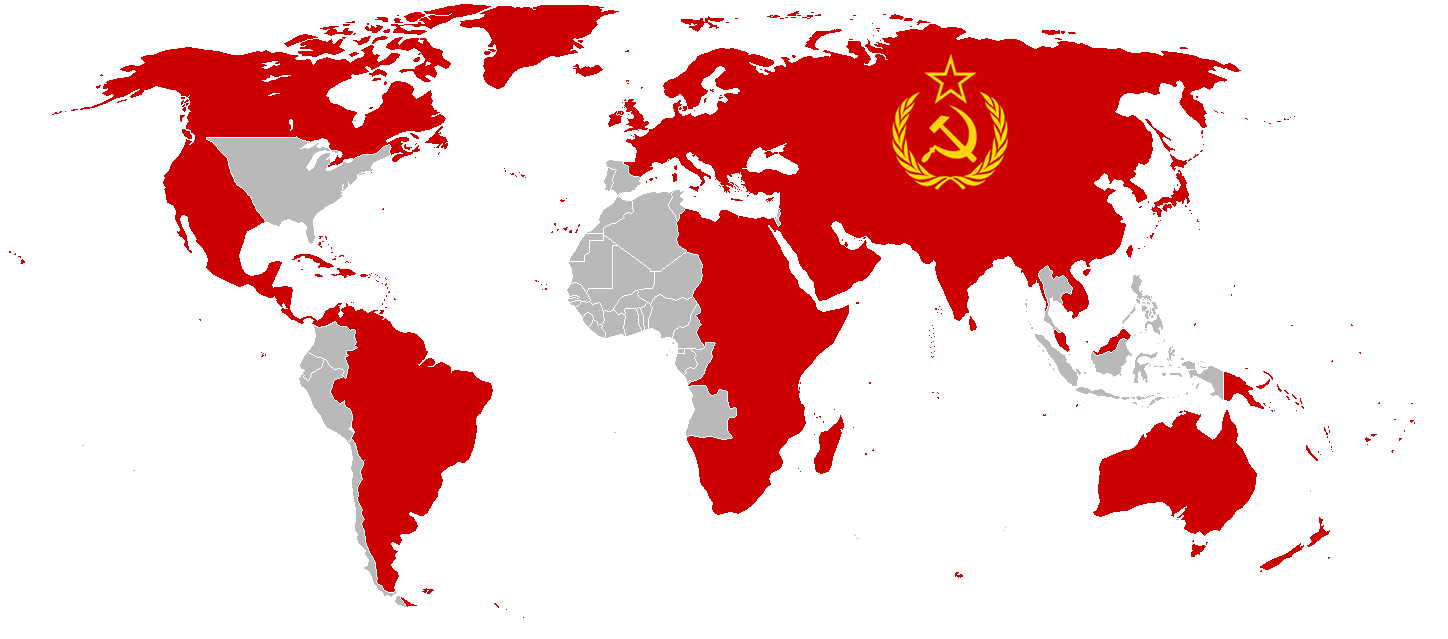The bottom part is supposed to say “both do.” I used google translate so it may not be accurate.
Cool meme. The Arabic is wrong though. Arabic doesn’t use “do” in this sense. So the sentence has the meaning of doing as if “doing something”. Come to think of it, English is the only langauge I know that uses " they do" in this sense. Even French would use “Etre” which is “to be” when speaking about something like that, because it’s not technically something they are doing but something they are.
Thanks, I didn’t expect my translations to be perfect.
Yeah, Spanish doesn’t either.
I think your translations would have been better if you had translated “They’re both bad” into all the languages.
True, I wrote something that only makes sense in English all but in English.
Spanish and German can’t say shit, imagine having to remember the gender of chairs.
Chinese would be great if it was invented 100 years ago instead of having gone through 3000 years of telephone until half the words are references to things long forgotten.
Fair. At least when you’re learning words you usually remember how they end and put together which words sound right with it when you recall them.
This is my problem with Portuguese too, its very gendered and there’s so many conjugations. I’m trying to learn Spanish with Duolingo and my most consistent mistake is what gender the words are because sometimes its not obvious.
I should be learning Portuguese since my family is but for som reason I wanna learn Spanish right now, I don’t know why…
These are justified criticisms you have every right to make, but please remember to wear a facemask while pronouncing the “TH” sound in public
Genders in German suck, but in Spanish it’s pretty easy as most feminine nouns end in “a”, and masculine in “o”. (with a few exceptions of course)
but remembering which ones are “o” and which ones are “a” is very difficult unless you practice many times a day and even easier to forget if you don’t.
Honestly English is a solid language: no conjugations, no gendered nouns, minimal articles – the only problem I (and most other people) have with it is that words are not written phonetically.
Yeah, if English was spelled better it would be a superior language.
funny enough it’s mainly the French influence that did this to English, it was pronounced a lot more like the way its spelled before that.
it’s not the french influence that caused the great vowel shift. the reason english spelling is so unphonetic is because the spelling is OLD. it gets unsystematic updates from time to time, but there hasnt been a complete overhaul in the last 1000 years. pronunciation has naturally changed in that time.
No conjugations? Do you mean declensions?
No, I meant conjugations but you can add declensions to the list too.
Now you’ll say that English has a conjugation for the 3rd singular person but it’s trivial, so it doesn’t really count
deleted by creator
The bottom part is supposed to say “both do”
“do” is overloaded in English, and the translator had picked the “doing something” meaning. For RU, it would be better to use “both are bad” or “both”, which would be “Оба плохие.” and “Оба.”.
That reminds me of that meme, something like
american academia: this article is not in english i cant read it.
latam academia: spanish and portuguese, no problem, english? we are talking right now. german? gime me one month
Did you mean to write “i can’t read it” for American academia?
fixed 😀
There is only one article in English: The
and the words doesn’t have genders
Russian translation might be wrong, going off of me being Polish.
Dzielać is a historical word here but it means working or doing. I’ve seen a comment saying how the Arabic translation is wrong and something similar happened here.
The correct translation would say that “both are”.
In Polish it would be “oba są”, on Russian I don’t know but I guess something along this lined seeing how similar the languages can be.
Also “oba są” lacks context, like ok they are, but what?
A better thing to write would be “oba ssą”. Yes that is just one more S, but it’s a declination of the word “ssać”, meaning “to suck”.
“Ambos los hacen” means “both do it”. Do what? idk
Judging by the comments here it seems like everything in that bottom part is wrong hahaha. A better translation would be “Ambos son”
I love how the entire comment section is talking about it’s miss spelled in every language
Try 两个都是 or 两个都不好
Alemão é uma língua bem merda também.
That Soviet flag tho
*RSFR
*RSFSR
Also, the S you remembered stands for “Soviet” so they’re technically not wrong











